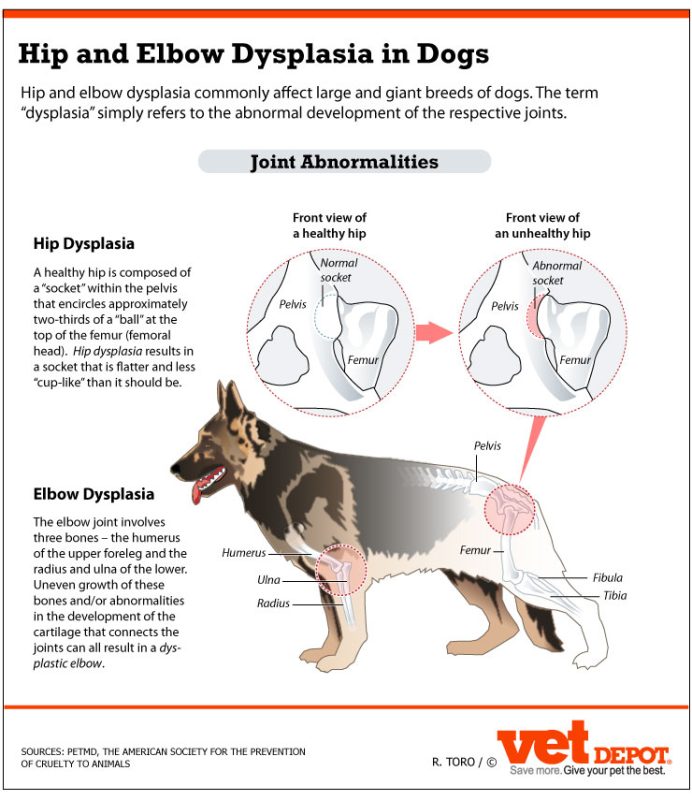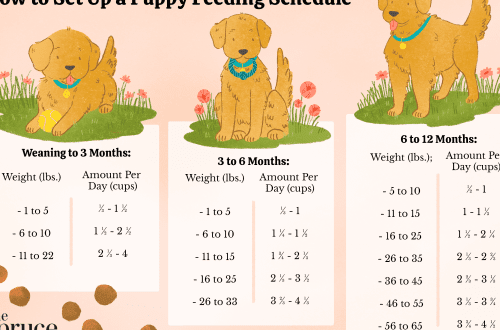
Hip dysplasia and other growth disorders in dogs
Proper nutrition is the best way to keep your puppy healthy throughout his life. If you feed him properly from the start and provide him with the necessary veterinary care, the chances of him developing dysplasia are greatly reduced.
Growth disorders are poor posture, crooked legs, severe obesity, painful joints, muscle atrophy, hip dysplasia, and difficulty walking. If your puppy is growing too fast, he may develop these symptoms.
Puppies of large or very large breeds (which will weigh more than 25 kg at maturity) are most at risk for growth disorders. Other factors such as environment, genetics and nutrition also play a role in your dog’s potential growth problems.
Feeding a puppy with a balanced diet is mainly of great importance for its harmonious development. How to feed a puppy? Veterinarians recommend the following options for better control of growth rate and body weight:
- Food restrictions – Divide your daily food intake into two or three servings.
- Time Limits – Feed your dog at specific times.
It is much easier to prevent growth disorders than to treat them, so feeding your puppy the right food is the best preventive measure you can take. For puppies of large and very large breeds, veterinarians recommend food with a limited energy value and a reduced calcium content. Puppies of medium and small breeds will benefit from a controlled intake of a properly balanced growth food.
For an accurate diagnosis and treatment options, contact your veterinarian.





